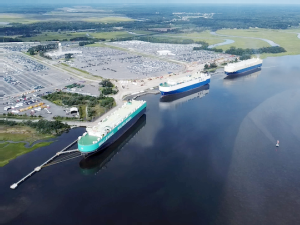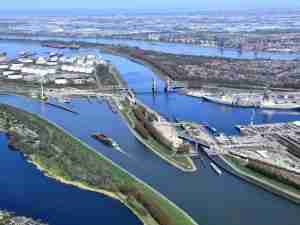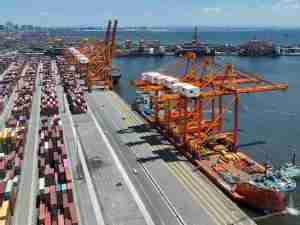Port of Baltimore Administration names Correale to direct dredging program
posted by AJOT | Nov 02 2015 at 03:46 PM | Ports & Terminals
The Maryland Port Administration (MPA) has named Christina E. Correale to oversee its dredging program as its new director of harbor development. Ms. Correale comes to the MPA after five years as principal of the EcoLogix Group, where her duties included serving as a senior advisor to the MPA on dredged material management projects. She previously was chief of the U.S. Army Corps of Engineers Baltimore District Operations Division, where she oversaw all aspects of its navigation program, including Baltimore Harbor and its channels operations and maintenance.
“Dredging has become a very critical component of furthering the MPA’s mission of promoting waterborne commerce through Maryland in a way that provides economic benefits for our state,” said MPA Executive Director James J. White. “Without continuous dredging of our channels, massive ships that continue to increase in size would not be able to reach the Port of Baltimore and support thousands of good-paying jobs. Chris Correale is uniquely qualified to lead this department and continue the Port of Baltimore’s outstanding reputation as a national leader in dredged material management.”
Correale began her new duties with the MPA last week. In her new role, Ms. Correale will oversee the selection, environmental feasibility, engineering and design, construction, and operation of dredged material placement sites, with a specific importance placed upon beneficial and innovative reuse.
“I’m extremely honored to become part of an organization that helps drive the economy of Maryland while helping to restore the Chesapeake Bay,” said Ms. Correale. “I look forward to continuing to work with all the stakeholders who have been engaged in helping the MPA with dredged material management issues.”
The MPA has received national and local environmental restoration recognition for three of its dredged material management projects: Poplar Island in Talbot County, Hart-Miller Island in Baltimore County, and Masonville in Baltimore City. After decades of erosion withered Poplar Island to less than 10 acres, it has been rebuilt to its original 1,140-acre size using dredged material. Poplar has become an international model for its beneficial use of sediment and is home today to over 200 species of birds. Similar to Poplar, Hart-Miller had suffered from severe erosion and has been rebuilt with dredged sediment from shipping channels to a 1,140-acre site that is a haven for wildlife as well as a state park open to boating, fishing, and swimming. Masonville, the newest dredge containment site, is one of Maryland’s greatest environmental restoration initiatives. More than 60,000 tons of industrial debris were removed, some of it dating back more than 100 years. Today Masonville includes new wetland and shoreline habitats as well as an environmental center that hosts about 2,000 visitors per year.










